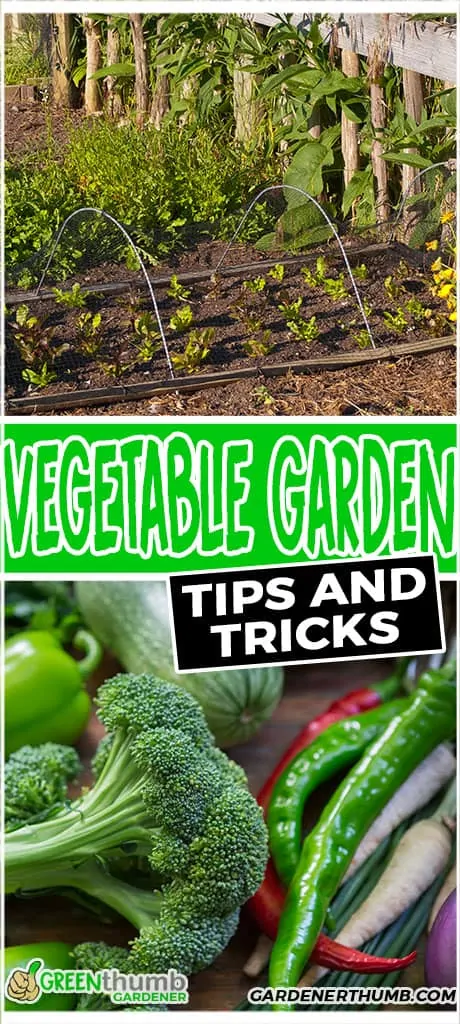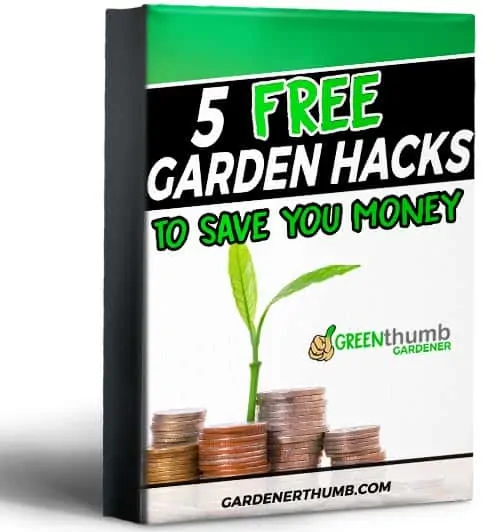Beginner Vegetable Gardening Tips and Tricks You Need To Know
Last updated: 12/21/20
Vegetable gardening is all fun for everybody, at least at first. However, I soon found myself thinking about what to do and what not to do. So, I researched vegetable gardening and found some useful tips and tricks.
You just might be in the same situation. So, in this article, I’ll share my vegetable gardening tips and tricks. This way, gardening can be fun throughout. Now, dig in!
Green thumb Gardener occasionally links to product and/or services offered by vendors to assist you with all your gardening needs. Some of these may be affiliate links, meaning we earn a small commission if items are purchased.
Want to Download a Garden Hack Guide for FREE
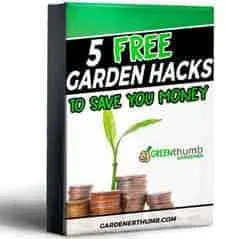
Enter your email below and we will send you a guide to help you SAVE money in your garden.
What Should I Plant in My Garden?
One of the most vital aspects of vegetable gardening is knowing what to plant. I’ve got to say; this is even more important if you’re new to vegetable gardening. This is because while you might have everything else figured out, you can’t move forward without knowing the veggies.
So, what are your best options? Well, I’ll be listing a few vegetables & herbs that you can start with. The advantage of choosing these veggies is that they are quite easy to grow. So, you will not have any issues starting. So, here are my top ten picks.
- Tomatoes
- Peppers
- Zucchini Squash
- Cabbage
- Lettuce
- Green Pole Beans
- Beets
- Carrots
- Herbs such as basil or parsley
- Radishes
- Chard, Kale, or Spinach
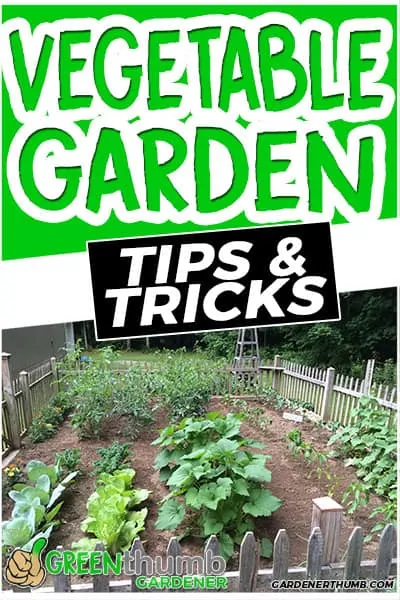
Now, while I’ve listed the ten options I found attractive, you still need to keep some things in mind. These things will help you pick more easily. So, here are my tips for you when choosing what to plant in your garden.
- You need to go for a vegetable that you enjoy eating. This is also the same as your family member. For instance, if no one loves beets, then you’ve got no reason to plant them.
- Do not overplant. It is better to pick more than one vegetable than plant only one veggie that you can’t possibly consume even after sharing it.
- Pick your veggies based on the available vegetables that you can get at the grocery stores. If you can easily get a quality veggie for a low price at the store, then you might want to avoid it. It would be best to get one that is not easily available in the grocery store, or you can’t get a quality one there.
- Pick vegetables that fit into your schedule. For instance, tomatoes grow best within summer. So, if you will be going on a summer vacation, you might want to avoid it.
- Go for a vegetable that you can get access to its seeds and high-quality ones at that. You might want to be more concerned about getting good seeds than spending less.
Where Should I Put My Vegetable Garden?
Now that you’ve got an idea what you should plant, you’re more equipped for success with your vegetable garden. However, that is not all you need to know. Now, you need to understand where to plant these vegetables that you’ve carefully selected.So, where should you put your vegetable garden? Well, there is no specific place to put it. However, when selecting a location, you will need to have some things in mind. The various things to keep in mind are as follows.
Use a Sunny Place
There is no doubt that vegetables need sun. Having some shade is ok, but some require at least 6-8 hours of sunlight to produce good yields. You want to get a location that allows the vegetables to get adequate access to sunlight and less shade.
Use Well-drained and Moist Soil
Next, you want to ensure that the soil in the location is suitable for growing vegetables. Precisely, you want to get soil that is well-drained but moist. This is very important as soil quality will determine the rate of growth and quality of the harvest.So what if the soil you have is just not suitable for growing or difficult to amend. You can always use a raised bed. This will ensure that you can get the required drainage and avoid the issues associated with poor soil. Just fill it with good organic material and amendments and you should be good to go
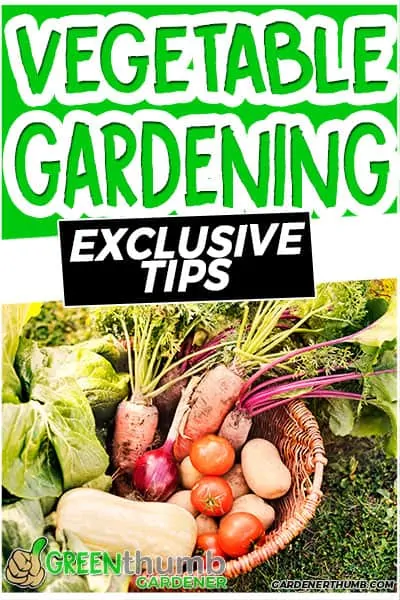
Use a Stable Surrounding
Another thing you need to consider to have healthy plants in your location is the use of a stable environment. This is also extremely important as it determines how safe your veggies will grow. So, you want somewhere that doesn’t have strong winds. This is because strong winds can kill your small plants. Even worse, it might limit pollination and productive plants.
You don’t want somewhere with considerable foot traffic. You don’t want a place that suffers from flooding or doesn’t drain properly. All this will stop your plants from growing properly. Be sure that these threats do not exist before you pick a location.
First Time Vegetable Gardening Tips
You must feel like you’re all ready to get straight to planting. Well, that is great. However, if you are a first-time vegetable gardener, you might still have some doubts. Well, that is understandable.
So, I’ve prepared some tips that should allow you to enjoy an easier onboarding process and give you a bountiful harvest. Here you go.
You Can Start Small
While it is always attractive to start with a bang and start large, when it comes to gardening, that is not always the case. It is okay to start small and work your way up to the top.
All you need to do is start with something that is enough to meet your needs and nothing else. Afterward, as you get more experienced and comfortable with vegetable gardening, you can begin to expand the size of your garden.
The advantage of this is that you don’t get overwhelmed. In turn, you can effectively monitor your garden and do all that you need to do.
Water Adequately
The next thing you need to keep in mind is that your vegetables need water. You can’t expect great results if you fail to water them properly. So, you want to ensure that you water all your plants properly and effectively.
In turn, you need to provide around an inch of water every week to your veggies. It would be best to install an irrigation system to help in watering. This will ensure that the watering of your plants can be effective.
Even more, they will target the soil, which will reduce the risk of wet foliage. This is very vital because wet foliage can result in various diseases to your vegetables. Still, keep in mind that you don’t want to go overboard with the watering.
Use Mulch
Another thing that is sure to help you as a beginner is the use of mulch. They come with a wide range of benefits to your vegetables. For instance, by adding a mulch layer of three inches around your vegetables, you insulate your soil. In turn, it can stay cooler and warmer in summer and winter, respectively.
Even more, it helps reduce the emergence of weeds and prevent the emergence of various diseases. However, keep in mind that it would be best to prioritize organic mulch. This will ensure that you can avoid harmful substances and chemicals.
Avoid Over Fertilization
It is a great option to fertilize your soil and provide it with additional nutrients. However, like with water, too much of it isn’t a good idea. This is because it can harm your plants and soil. Even more, some components of the fertilizers might promote the growth of leaves instead of fruits. So, avoid over-fertilizing.
Your best bet would be to prioritize organic compost. This way, your plants can thrive naturally in the absence of harmful chemicals.
Be Careful with Pest Control Chemicals
While you want to get rid of a pest, don’t focus too much on it by becoming a pest yourself. This can occur when you keep applying various chemicals to the area, which then affects the soil’s quality.
So, it would be best to apply insecticides, fungicides, and pesticides responsibly. You don’t want to apply them in the morning. You also don’t want to apply them regularly. Otherwise, you’ll lose more than the pests.
In turn, this ensures that your soil remains in the best condition to get the job done.
Home Vegetable Gardening Ideas
If you’re planting your veggies at home, you will surely need help. Here are some tips to help you make it a smooth ride.
Use Companion Growing
You can make use of companion growing. It involves the planting of multiple types of veggies within the same land. This comes with a wide range of advantages. For instance, it makes it harder for pests to spread when done rightly. It also ensures that you can maximize your available space. It will even allow easy nutrient nourishment of the soil.
Plant Cover Crops
You can also plant cover crops to make things happen. It ensures that you can remotivate your soil for a better yield. This is because it stimulates soil nutrients.
Final Thoughts
Vegetable gardening is something you should look forward to. Not only is it fun, but it also allows you to get access to a wide range of home-grown food items. However, the reality is that it can turn out to be stressful without the right information. Well, that is why I’m here.
In this article, I’ve provided various tricks and tips that I found useful. You can read up and get started with your vegetable gardening.
Related Questions
1. Is Companion Planting a Good Fit for You?
Yes, it comes with a wide range of advantages for vegetable gardening, such as boosting growth and repelling pests. Even more, it allows you to maximize your gardening space.
2. What Is the Easiest Vegetable to Grow?
You will find it quite easy to grow a wide range of vegetables. They include carrots, cucumbers, lettuce, kale, peas, radishes, and squash.

